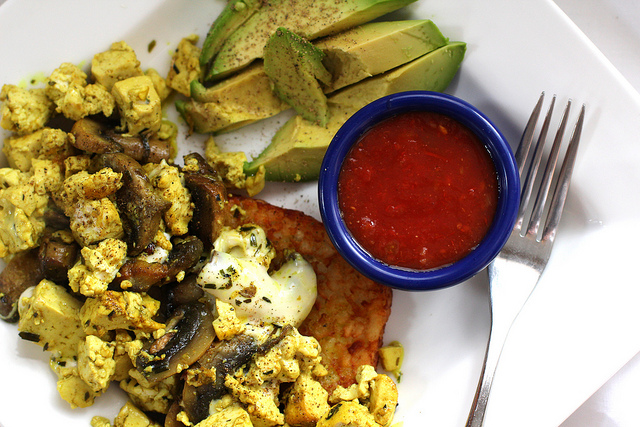Last Updated on Aug 5, 2024 by Happy Dieter
Chickpeas, with their versatility and nutritional value, are a popular legume in various cuisines. However, if you’re following a keto diet or a low-carb lifestyle, you may be wondering whether chickpeas are keto-friendly.
When it comes to the keto diet, chickpeas are not considered keto-friendly due to their high carbohydrate content. In fact, one cup of cooked chickpeas contains more than 32 grams of net carbs, making them too high in carbs to fit into the low-carb, high-fat requirements of the keto diet.
While chickpeas are a good source of protein and fiber, it’s their carb content that makes them unsuitable for a keto diet. However, it’s important to note that chickpeas can still be incorporated into a balanced, low-carb diet in moderation.
Key Takeaways:
- Chickpeas are not considered keto-friendly due to their high carb content.
- One cup of cooked chickpeas contains more than 32 grams of net carbs.
- Chickpeas can still be enjoyed in moderation as part of a low-carb diet.
- They are a good source of protein and fiber.
- Monitor your carb intake and practice portion control when including chickpeas in your meals.
Carbs in Chickpeas and Their Impact on Keto
Chickpeas, also known as garbanzo beans, are a popular legume with a wide range of culinary uses. However, if you’re following a keto diet, it’s important to understand the carb content of chickpeas and how they can affect your ketosis.
One cup of cooked chickpeas contains 45 grams of total carbs and 32 grams of net carbs. Net carbs are calculated by subtracting the fiber content from the total carbs, as fiber is not fully digested and doesn’t significantly impact blood sugar levels. Despite being a good source of fiber, with 12.5 grams per cup, the high carb content of chickpeas makes them incompatible with the keto diet.

When following a keto diet, the goal is to enter ketosis, a metabolic state where your body burns fat for fuel instead of carbohydrates. Consuming high-carb foods like chickpeas can disrupt ketosis and make it harder for your body to reach and maintain this fat-burning state.
Although chickpeas are relatively high in carbs, they also offer other nutritional benefits. They are rich in plant-based protein, providing around 15 grams per cup, making them a good option for those following a vegetarian or vegan keto diet. Additionally, chickpeas are a good source of vitamins and minerals, including folate, iron, and magnesium.
If you’re on a keto diet and still want to enjoy legumes, there are alternative low-carb options that you can consider. Edamame, black soybeans, and mung beans are all low in net carbs and can be used as substitutes for chickpeas in various recipes.
Nutritional Comparison of Chickpeas and Alternative Legumes
| Legume | Net Carbs per 1 Cup (Cooked) | Fiber per 1 Cup (Cooked) | Protein per 1 Cup (Cooked) |
|---|---|---|---|
| Chickpeas | 32g | 12.5g | 15g |
| Edamame | 4g | 6g | 17g |
| Black Soybeans | 1g | 16g | 16g |
| Mung Beans | 6g | 7.5g | 13g |
As you can see from the comparison table, alternative legumes like edamame, black soybeans, and mung beans have significantly lower net carb content than chickpeas. They also offer similar or higher amounts of fiber and protein, making them more suitable for a keto diet.
While chickpeas may not be ideal for keto, they can still be enjoyed in moderation as part of a balanced, low-carb diet. Just be mindful of your overall carb intake and make sure to prioritize other low-carb, keto-friendly foods to stay in ketosis.
Can I Include Lentils in a Keto Diet if I’m Already Eating Chickpeas?
Yes, you can include lentils in a keto diet, but it’s important to be mindful of portions. While chickpeas are higher in carbs, are lentils keto-friendly in moderation due to their lower carb content. It’s best to track your macros and adjust your portion sizes to fit your dietary needs.
Incorporating Chickpeas into a Low-Carb Diet
While chickpeas may not be suitable for the strict carb restrictions of the keto diet, they can still be incorporated into a low-carb diet in moderation.
Chickpeas are a good source of fiber, protein, and various nutrients. One cup of cooked chickpeas provides 12.5 grams of fiber, which helps with digestion and weight management. They are also rich in plant-based protein, with around 15 grams per cup.
To include chickpeas in a low-carb diet, it’s important to practice portion control and be mindful of your daily carb intake. By monitoring your carb intake and incorporating chickpeas into balanced meals, you can still enjoy their nutritional benefits while maintaining a low-carb lifestyle.
FAQ
Q: Are chickpeas keto-friendly?
A: No, chickpeas are not considered keto-friendly due to their high carbohydrate content.
Q: How many carbs are in chickpeas?
A: One cup of cooked chickpeas contains 45 grams of total carbs and 32 grams of net carbs.
Q: Why are chickpeas not suitable for the keto diet?
A: The high carb content of chickpeas can disrupt ketosis, the metabolic state in which the body burns fat for fuel instead of carbohydrates.
Q: What are some low-carb legume alternatives to chickpeas?
A: Alternative low-carb legumes that can be substituted for chickpeas include edamame, black soybeans, and mung beans.
Q: Can chickpeas be incorporated into a low-carb diet?
A: Yes, chickpeas can still be incorporated into a low-carb diet in moderation, as they are a good source of fiber, protein, and various nutrients.
Q: How much fiber and protein do chickpeas provide?
A: One cup of cooked chickpeas provides 12.5 grams of fiber and around 15 grams of protein.
Q: How can I include chickpeas in a low-carb diet?
A: To include chickpeas in a low-carb diet, it’s important to practice portion control and be mindful of your daily carb intake.















